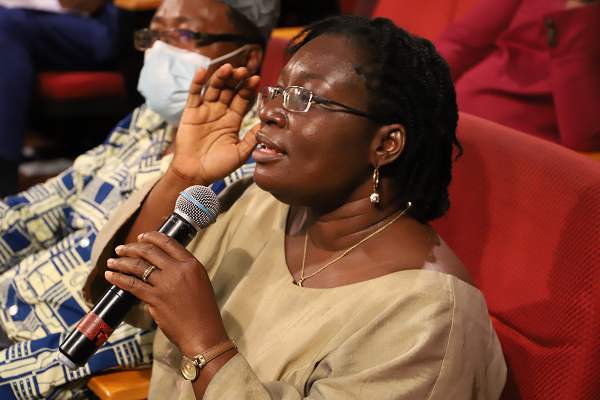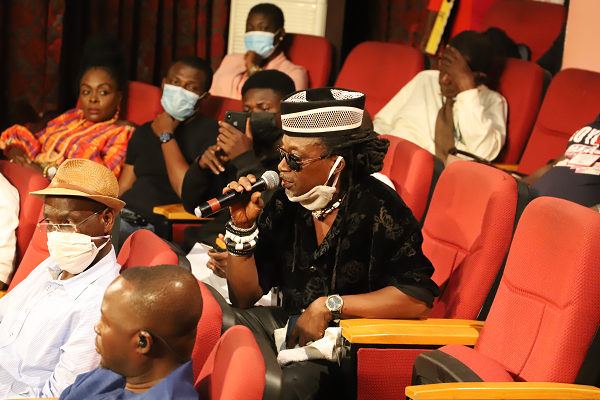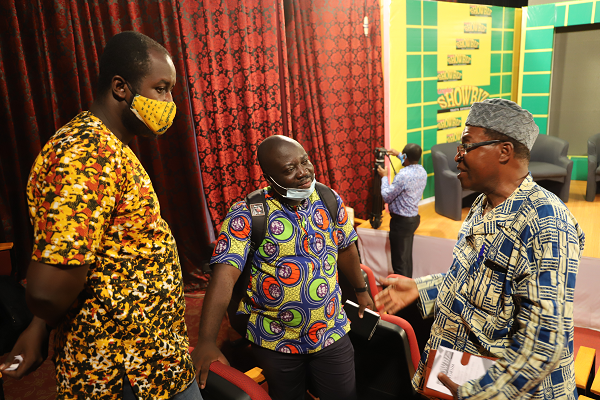![]()

‘Creative industry deserves more attention’
The Chief Executive Officer (CEO) of Glitz Africa Magazine, Mrs Claudia Lumor, believes the fashion industry in particular, and the creative industry in general, deserve more attention because of their huge economic potential and solution for creating jobs.
According to her, the fashion industry was a thriving business in Africa, saying that particularly for Ghana, it was the number one on the list of many foreign outlets, yet the least considered in the creative sector
Advertisement
“Fashion is a trillion-dollar business in Africa, and when it comes to clothing, Ghana is in the lead in Africa. Ghana is number one on the list of many foreign fashion outlets but, unfortunately, it is the least considered in the creative sector,” she said.
Mrs Lumor expressed the sentiment at the maiden Graphic Showbiz Forum on the Creative Industry, an event organised at TV3’s Executive Theatre last Monday evening.
The Forum

The forum, held in partnership with Media General and Cheezy Pizza, brought together stakeholders in the creative industry to discuss political parties’ manifestos on the industry.
Moderated by Francis Doku, the forum, held on the theme: “Moving from promises to actions: A discussion of party manifestos on the creative industry”, featured various speakers who represented the various aspects of the industry.
They included Mr Oswald Okaitei (poetry and the spoken word), George Bosompim (film), Kojo Bentum-Williams (tourism), Edem (music) and Abeiku Sagoe (theatre).
There were also contributions from notable personalities such as the Chairman of the National Film Authority, Mr David Dontoh; highlife artistes Rex Omar, Amandzeba and Akosua Adjepong, as well as a former President of MUSIGA, Mrs Diana Hopeson, and the popular poet, Nana Asaase.

Million-dollar industry
Mrs Lumor, who spoke on fashion, said although statistics available at the World Bank and the African Development Bank indicated that fashion was the second largest sector in Africa, apart from agriculture, very little attention was given to the sector in both past and current manifestos of the parties.
“Given its potential to create wealth, the fashion industry cannot be ignored when we talk about the creative industry. We need to be called to the table to be part of the decision making,” she stressed.

Panellists
All the speakers said it was not enough for political parties to include a paragraph or two on the creative and tourism industries in their manifestos, as those policies barely mirrored the overwhelming and existing challenges of the sector.
They said previously, there was hardly any mention or recognition for the industry in the manifestos, adding that although the situation had changed, “that has not yielded much progress for the industry”.

Strengthen existing policies
Mr Sagoe, who has over 50 years’ experience in theatre, said there was no need for successive governments
to create new policies, noting that rather, they should strengthen existing ones.
He intimated that the existing cultural policy should be a guide for governments, but it had been neglected.
Poet Okaitei said a holistic analysis of successive governments’ support for the sector showed that they didn’t have an understanding of the scope and operations of the creative industry.
He indicated that the National Commission on Culture, which plays a key role in the sector, had become a white elephant, since the politicians who formulated the policies were lost on the direction and focus of the industry.
“Unfortunately, we have agencies managed by people who do not have what it takes to lead. They are there because of allegiance to a particular political party and would not even listen to those who have ideas and understanding of the sector. In the end, agencies that are to promote the creative arts have now become business centres stifling the progress of creative persons,” he said.
Film
The Public Relations Officer of the Ghana Academy of Film and Television Arts, Mr Bosompim, for his part, said although film was considered one of the prominent wings of the creative arts, the sector had, however, not progressed as it should, as it could not keep up with the changing times.
“What vision do we have for this industry? People sold us into slavery when they sold GAMA Films Company because they didn’t understand the vision of the country. There has been so much struggle to ensure the film industry is still vibrant after that unfortunate incident,” he said.
Tourism
Mr Bentum-Williams asserted that lack of funds had been a major challenge for the tourism industry and said the setting up of the tourism levy had helped to resolve that.
“You need about $200,000 to go on a single roadshow. The tourism levy took away some of the problems, but the Ghana Tourism Authority has to be strengthened,” he said.

Broader consultation
Musician and rapper, Edem, noted that manifestos did not provide clear guidelines on the sources of funding to implement the policies stated in them.
He suggested that there should be broader consultations that would be a blueprint for subsequent governments to follow, so that the industry would not be subjected to the interests of political parties.
In her welcome address, the Editor of Graphic Showbiz, Ms Adwoa Serwaa Bonsu, said despite showing great capacity for economic growth, the creative industry had clearly not received much attention from governments, while the policies sometimes formulated did not echo challenges in the industry.



